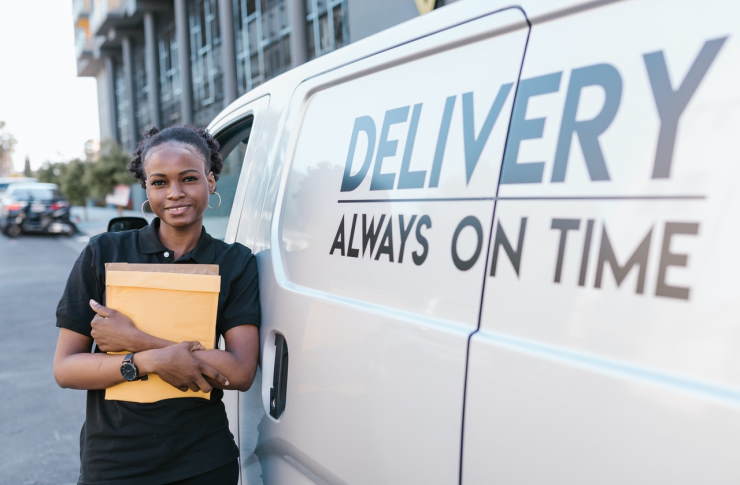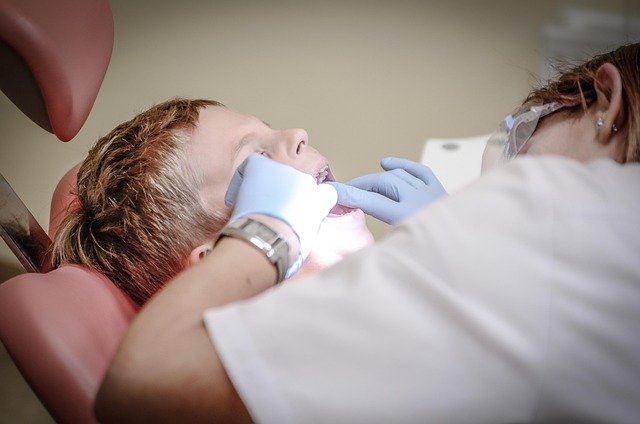A Comprehensive Guide to Starting Your Career as a Medicine Delivery Driver in 2026
The healthcare logistics sector is experiencing significant growth, creating opportunities for individuals interested in medicine delivery roles. As pharmacies and healthcare providers increasingly rely on home delivery services, the demand for reliable drivers continues to rise. This guide explores what it takes to begin a career in this essential field, covering the responsibilities, qualifications, and pathways available to those considering this profession in 2026.

Medicine delivery drivers play a vital role in modern healthcare systems by ensuring patients receive their prescriptions safely and on time. This specialized form of delivery work combines elements of logistics, customer service, and healthcare support. As the industry evolves with technological advancements and changing patient needs, understanding the fundamentals of this career path becomes increasingly important for prospective drivers.
Understanding the Role of a Medicine Delivery Driver
Medicine delivery drivers transport prescription medications and medical supplies from pharmacies, hospitals, or distribution centers directly to patients’ homes or healthcare facilities. Unlike general package delivery, this role requires attention to detail regarding handling sensitive medical products, maintaining proper storage conditions, and ensuring patient privacy. Drivers typically follow specific routes, verify patient identities, collect signatures, and may need to explain basic delivery instructions. The position demands reliability, as patients often depend on timely medication deliveries for their health management. Drivers must also navigate various weather conditions and traffic situations while maintaining the integrity of temperature-sensitive medications.
Key Qualifications for Aspiring Drivers
While specific requirements vary by employer and region, most medicine delivery positions require a valid driver’s license with a clean driving record. Many employers prefer candidates with at least one to two years of driving experience. A high school diploma or equivalent is typically the minimum educational requirement. Background checks are standard, as drivers handle controlled substances and access patient information. Some positions may require HIPAA training to ensure proper handling of protected health information. Physical fitness is important, as the job involves lifting packages, navigating stairs, and spending extended periods driving. Basic smartphone or GPS navigation skills are essential for route management. Certain employers may require additional certifications depending on the types of medications being transported, particularly for temperature-controlled or hazardous materials.
Navigating Career Paths in Medicine Delivery
Entry into medicine delivery typically begins with courier or driver positions at pharmacies, healthcare logistics companies, or specialized medical delivery services. Many drivers start part-time or as independent contractors before transitioning to full-time roles. Career advancement opportunities include supervisory positions, route management, dispatch coordination, or fleet management roles. Some drivers specialize in specific areas such as clinical trial deliveries, specialty pharmacy logistics, or home infusion services. The growing telehealth industry and mail-order pharmacy sector are creating new pathways within this field. Drivers who demonstrate reliability, customer service excellence, and knowledge of healthcare regulations often find opportunities for professional growth. Networking within healthcare logistics associations and pursuing additional certifications can enhance career prospects.
Essential Skills for Success in Medicine Delivery
Successful medicine delivery drivers possess strong time management abilities to maintain delivery schedules while handling multiple stops efficiently. Excellent communication skills are crucial for interacting with patients, many of whom may be elderly or dealing with health challenges. Attention to detail ensures accurate deliveries and proper documentation. Problem-solving skills help drivers navigate unexpected situations such as address changes, access issues, or delivery complications. Discretion and professionalism are paramount when handling sensitive medical information and entering patients’ homes. Technical proficiency with delivery tracking systems, mobile applications, and electronic signature devices is increasingly important. Drivers must also maintain composure under pressure and adapt to changing circumstances throughout their routes.
Training and Onboarding Processes
Most employers provide comprehensive training programs for new medicine delivery drivers. Initial training typically covers company policies, delivery procedures, vehicle operation, and safety protocols. Drivers learn proper medication handling techniques, including temperature maintenance requirements and secure transport methods. HIPAA compliance training ensures understanding of patient privacy regulations. Many companies include shadowing experiences where new drivers accompany experienced colleagues to learn route management and customer interaction best practices. Ongoing training may address new technologies, regulatory updates, or expanded service offerings. Some organizations offer professional development opportunities in areas such as customer service excellence, defensive driving, or healthcare logistics management.
Industry Outlook and Opportunities
The medicine delivery sector continues expanding due to aging populations, increased chronic disease management, and consumer preference for home delivery services. Technological innovations such as route optimization software, real-time tracking systems, and automated dispensing are reshaping the industry. The rise of specialty pharmacies handling complex medications creates demand for drivers with specialized knowledge. Rural and underserved areas present particular opportunities as healthcare systems work to improve medication access. The integration of telehealth services with prescription delivery is creating hybrid roles that combine traditional delivery with basic patient interaction. While automation and drone delivery remain topics of discussion, human drivers continue to be essential for handling controlled substances, verifying patient identities, and providing the personal touch many patients value.
Preparing for Your Application
Prospective medicine delivery drivers should prepare by obtaining a clean driving abstract and gathering employment references. Researching potential employers helps identify companies whose values and service areas align with personal preferences. Updating resumes to highlight relevant experience such as previous driving roles, customer service positions, or healthcare-related work strengthens applications. Preparing for interviews by understanding basic healthcare terminology and demonstrating awareness of patient privacy importance can set candidates apart. Flexibility regarding scheduling, including potential weekend or evening shifts, increases employment prospects. Candidates should be ready to discuss their reliability, problem-solving abilities, and commitment to serving patients with professionalism and compassion.
Starting a career as a medicine delivery driver offers the opportunity to contribute meaningfully to healthcare delivery while building skills in logistics, customer service, and healthcare operations. As the industry continues evolving, those entering the field in 2026 will find themselves part of an essential service that directly impacts patient well-being and healthcare accessibility.




